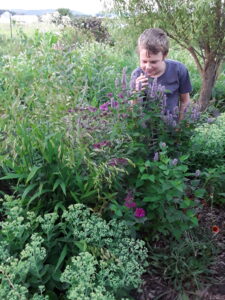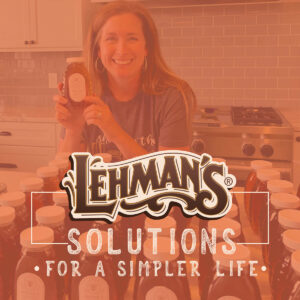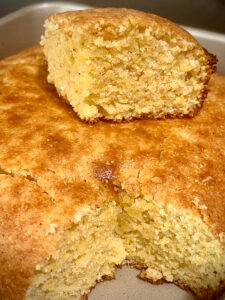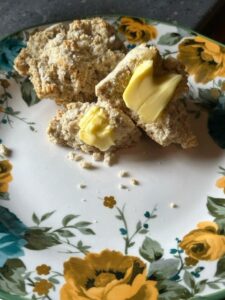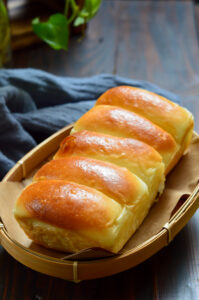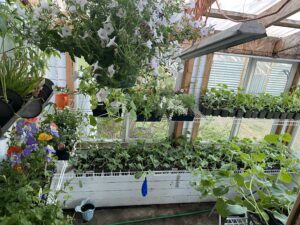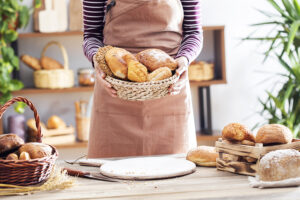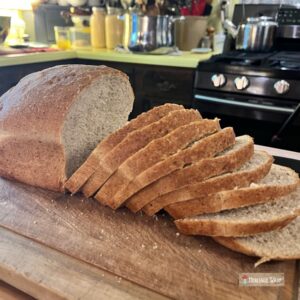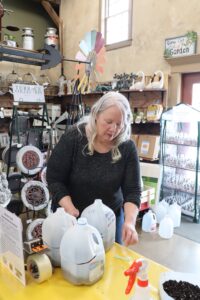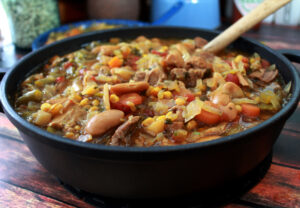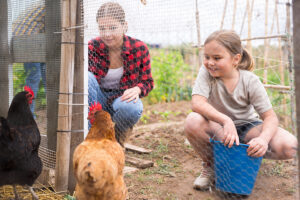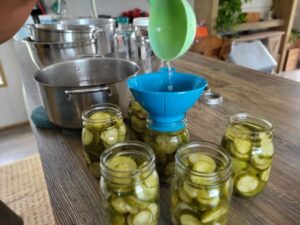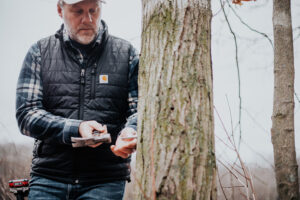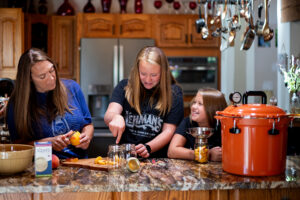The hottest new trend in our neck of the woods is gathering a group to learn cheesemaking. In the past year I’ve taught

cheese classes in places like Lehman’s retail store, a local foods market, an upscale kitchen store, a 4-H group, church groups and even as a surprise birthday party for an Amish friend.
The marvel of how milk magically cultures and ferments into yogurt, kefir and cheese is catching the fancy of farmers and foodies alike. Many classes I teach have at least a few folks with cows or goats who are wanting to learn how to make wise use of that milk. In fact, a plentiful supply of milk from our family Jersey cow and handful of goats plunged us into the art of cheese-making.
If you don’t have goats or a cow, don’t worry. Recently, I taught 14 folks who didn’t own any milk-producing stock how to use good quality store-bought milk to produce a wide array of cheeses. The resident goat or cow (or water buffalo) is purely optional.
Culturing milk for longer storage and greater flavor has a rich history, probably originating with desert nomads who had no refrigeration. Good bacteria go to work breaking down the casein and lactose in dairy products giving them a longer shelf life and actually making them more digestible and nutritious to people. Depending on the bacteria, temperature and cooking time, you can create anything from yogurt and crème fraiche to fromage blanc and farmhouse cheddar.
In class, we begin with yogurt, which is one of the simplest forms of cultured milk. Our family has a three-gallon-a-week yogurt habit and I shudder to consider the price tag of store-bought yogurt. Making our own yogu rt is both efficient and economical.
rt is both efficient and economical.
Yogurt is one of the most efficient milk cultures, since one gallon of milk will produce one gallon of yogurt. There are fancy yogurt makers available but you can also use basics that may already be in your kitchen, like a stainless steel kettle, quart canning jars and a small picnic cooler for incubating.
The next step in the cheese-making journey is to try soft cheeses. Using either yogurt or mesophilic starter culture and a few drops of rennet, you can create a delicious soft spreadable cheese similar to cream cheese. When you add fresh chopped herbs and serve it on crackers or in mini sweet peppers, you have a gourmet snack. Another delightful twist to soft cheese is to add honey, cinnamon and vanilla to create a dessert cheese. This is a new trick I learned from my favorite cheese book, Home Cheesemaking by Rikki Carroll. It was a  hit served on homemade crackers.
hit served on homemade crackers.
Thirty-minute mozzarella makes an impressive grand finale for a cheesemaking class. While most cheesemaking processes take hours, this recipe really can be completed in 30 minutes. Key ingredients like citric acid, rennet and salt are all available on the amazing shelf of cheesemaking supplies at Lehman’s, and through their website, www.lehmans.com.
At the end of the proces s, taste test your fresh mozzarella on toasted artisan bread with slices of tomato and basil – simply delectable!
s, taste test your fresh mozzarella on toasted artisan bread with slices of tomato and basil – simply delectable!
My twelve year old daughter is my assistant and head mozzarella stretcher for my cheese classes and I emphasize that it is not difficult to make these recipes since she can easily make all of them. She has even received a number of offers to be hired as “in-house cheese support.†I also encourage people to remember that this is an artisan process and it may take some practice to get consistent results but it is worth the effort.
So the next time you are looking for something new and exciting to do with a group of friends, try hosting a cheese-making party. Lehman’s will be glad to be your source for all the great supplies–they have everything you need. (Except the cow or goat. You’ll have to stop by the Kidron Livestock Auction to pick up those.)
Here is a simple cheese to start your cheesemaking adventures. This wonderful spreadable cheese can add some zip to your Thanksgiving or Christmas celebrations, and it’s perfect for football parties.
Soft Herb Cheese
1 gallon whole milk
1 packet mesophilic starter or 1/4 cup live culture yogurt
3 drops liquid rennet
salt
Heat milk in stainless steel pot to 86 degrees. Add the starter and mix thoroughly. Add rennet and stir gently. Cover and let set at room temperature for 12 hours or until solid curd forms. The curd will look like yogurt and you’ll see whey start to form on the top. Pour curd into a cheese cloth lined colander or butter muslin bag to hang. Let drain several hours. Add salt and herbs to taste. Some of our favorite combinations are rosemary and shallots or dill and garlic. This cheese will store in the refrigerator about 2 weeks.

